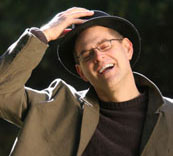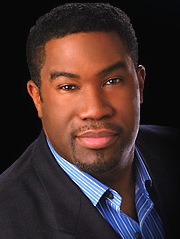 Gloria Cheng opened the Piano Spheres season last night at Zipper Hall. Much of the concert comprised selections from her recent recording, Piano Music of Salonen, Stucky and Lutoslawski, and if you don’t yet have this in your library, now is a good time to correct your omission. And here’s just one of its good reviews (just scroll down).
Gloria Cheng opened the Piano Spheres season last night at Zipper Hall. Much of the concert comprised selections from her recent recording, Piano Music of Salonen, Stucky and Lutoslawski, and if you don’t yet have this in your library, now is a good time to correct your omission. And here’s just one of its good reviews (just scroll down).
Betty Freeman commissioned a new work from Gerald Barry for Cheng to perform, and this opened the second half of the program. Le Vieux Sourd [the old deaf one], Debussy’s nickname for Beethoven, starts with quiet fragments of classical themes, as if you’re eavesdropping on a pianist just noodling around instead of practicing. Some distant “explosions” (Barry’s description) occur and get closer as the volume swells. The work then ends with loud settings of Auld Lang Syne (not the setting Beethoven did) fighting to be heard against the explosions and the loud extracts of other themes. My impression was of an angry Charles Ives, perhaps after a few too many drinks, writing something to force an audience to pay attention to his music. But the idiosyncratic work, wild and wacky, was fun. Cheng then balanced this work with the “Alcott” movement of Ives’ Second Sonata, and her lyricism seemed to beautifully reflect Ives’ intentions. This was an apt choice to accompany the Barry, with its Beethoven theme and its multiple threads.
There were three peaks in the concert. First was the youthful, student-written Piano Sonata (1934) of Lutoslawski. It’s a lovely work, and Cheng is doing the right thing in reviving it. (Although apparently played often by Lutoslawski, he never published it, and its first publication was only four years ago; Cheng said that she know of only one other pianist who has played the work since.) The work has a strong French accent; the ties to Ravel are noticeable, and Stucky has identified other influences as well. But even though the 21-year-old Lutoslawski did not have his own distinctive voice, he could certainly write well. This is a pleasure to hear, and by itself justifies listening to the recording. The second peak for me was Cheng’s performance of the Ives selection.
And then the climax, closing the concert, was her performance of Salonen’s Dichotomie (2000), written for Cheng. She commented before starting the work that she no longer needs to wear gloves as protections for her hands during the performance (the glissandos are fearsome), and she has all of the many performance demands well under her own control and interpretation. She enables this work to present the stimulating composer Salonen has become. (more…)

 Violinist Anne-Sophie Mutter is continually creating something new – from concerti by Krzysztof Penderecki and Andre Previn to works by Sebastian Currier and Henri Dutilleux.
Violinist Anne-Sophie Mutter is continually creating something new – from concerti by Krzysztof Penderecki and Andre Previn to works by Sebastian Currier and Henri Dutilleux.

 Baritone Eric Owens is busy this fall – his Met debut as General Leslie Groves in John Adams’ Dr. Atomic is just a start to his performances this season in New York, Atlanta, London and Los Angeles.
Baritone Eric Owens is busy this fall – his Met debut as General Leslie Groves in John Adams’ Dr. Atomic is just a start to his performances this season in New York, Atlanta, London and Los Angeles.
